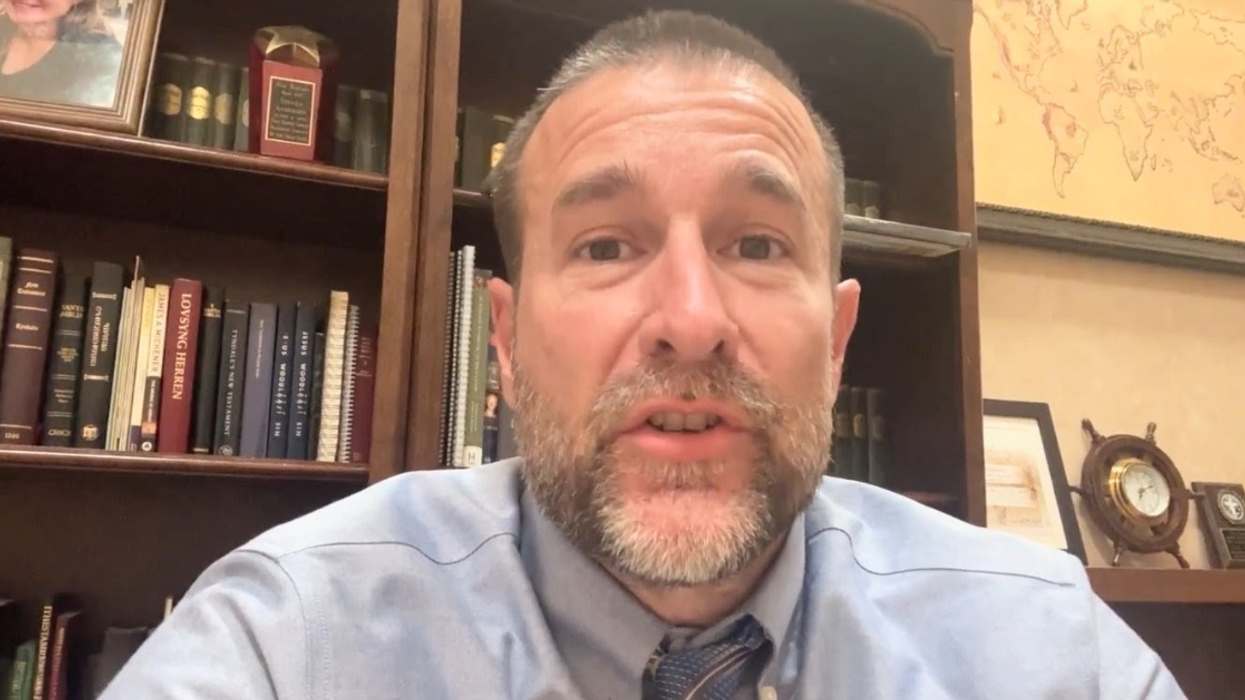China wants to make it rain.
If government officials in the world’s fourth-largest country have their way, a man-made weather-control machine will produce up to 10 million cubic meters of rain across the Tibetan Plateau — an area roughly the size of Alaska.
As an extension of the “Sky River” project developed in 2016 by scientists at China’s Tsinghua University, the Chinese state-owned Aerospace Science and Technology Corporation has developed rain-inducing machines that disperse tiny silver iodide particles into the atmosphere.
The particles then act as nucleation centers for condensed water — in other words, allow the water molecules to stick together and eventually form a cloud that will become heavy enough to rain. In natural weather systems, it’s typically particles of dust that allow condensation to nucleate.
There’s no question the system works — the government used it to absorb moisture in the sky and produce precipitation ahead of the 2008 Beijing Olympics, thereby ensuring a dry week for the event. If the experiment on the Tibetan Plateau is successful, the resulting rain could equal approximately 7 percent of China’s annual water consumption, mitigating the drought conditions that have plagued much of the world — and especially China — the past few years.
“[So far,] more than 500 burners have been deployed on alpine slopes in Tibet, Xinjiang and other areas for experimental use. The data we have collected show very promising results,” a researcher told the South China Morning Post. The Tibetan Plateau is the source of most of China’s water; each of the machines is expected to create a 3-mile-long string of rain clouds.
Although the U.S. and other countries — 52 countries, to be exact — have tried similar artificial rain systems, it was on a much smaller scale.
“The Chinese have been doing cloud seeding for a long time, but it’s only in the last 10 to 15 years that they’ve taken a scientific approach,” said Roelof Bruintjes, chair of the World Meteorological Office’s Expert Team on Weather Modification. “We are training some of their scientists and we’re trying to get them to be more quantitative.”
Some experts are concerned, however, about both the physical and political ramifications of controlling weather systems. For instance, moisture that would have eventually produced clouds in nearby Pakistan, India and Nepal may no longer reach those areas, which could have a massive, unbalancing effect on the entire Asian continent.
“Such weather modification does not 'produce' rain as such," geoengineer Janos Pasztor, from the Carnegie Climate Geoengineering Governance Initiative (C2G2), told Gizmodo. “Rather, it makes rain happen somewhere, which means that it will not happen somewhere else. This immediately means that ecosystems and people living somewhere else where it would have rained will no longer get this rain."
Others put the risks more plainly:
“That is one massively powerful economic weapon,” Jim Dale, a consultant at meteorology firm British Weather Services, told Newsweek.













 Happy Feeling Myself GIF by Laff
Happy Feeling Myself GIF by Laff  Charlie Day Ok GIF
Charlie Day Ok GIF  Happy Sesame Street GIF by Muppet Wiki
Happy Sesame Street GIF by Muppet Wiki 
 @max_balegde/TikTok
@max_balegde/TikTok @max_balegde/TikTok
@max_balegde/TikTok @max_balegde/TikTok
@max_balegde/TikTok @max_balegde/TikTok
@max_balegde/TikTok @max_balegde/TikTok
@max_balegde/TikTok @max_balegde/TikTok
@max_balegde/TikTok @max_balegde/TikTok
@max_balegde/TikTok @max_balegde/TikTok
@max_balegde/TikTok @max_balegde/TikTok
@max_balegde/TikTok @max_balegde/TikTok
@max_balegde/TikTok
 @jackuno/Instagram
@jackuno/Instagram @jackuno/Instagram
@jackuno/Instagram @jackuno/Instagram
@jackuno/Instagram @jackuno/Instagram
@jackuno/Instagram @jackuno/Instagram
@jackuno/Instagram @jackuno/Instagram
@jackuno/Instagram @jackuno/Instagram
@jackuno/Instagram @jackuno/Instagram
@jackuno/Instagram